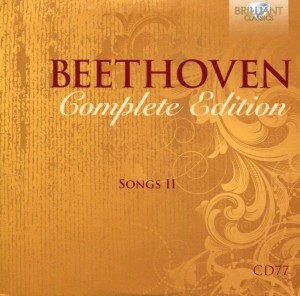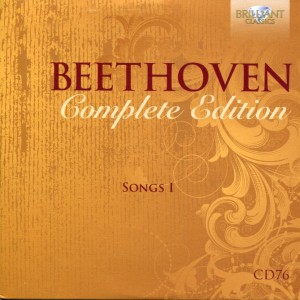 I love the German language. It makes me laugh.
I love the German language. It makes me laugh.
Not out of disrespect; rather, I love the sounds of it, its penchant to take what – in English – would be a simple, one-syllable word, remove most of its vowels, and quadruple the number of syllables.
Today’s CD (Songs II) is entertaining.
The music (piano provided by Walter Olbertz on all tracks except Track 11; Gisela Franke plays piano on that one)) is bouncy and interesting. The voice belongs to renowned tenor Peter Schreier.
And that’s it. Just voice and piano.
And lots of German words.
Here’s an example:
That’s Track One (“Aus Goethes Faust Op 75 No. 3”), written in 1809. Beethoven was 39. The main title of the four tracks that follow that one is “Scherzlieder.”
With few exceptions, that’s how the entire CD sounds. Just a fantastic tenor and delightful piano accompaniment.
The second thematic composition (“Vier Arietten Und Ein Duett Mit Italienischem Text Oop. 82”) is more introspective and melancholy. At least in the first track (“Hoffnung”). The second track (“Liebesklage”) is bouncier, more like the first track of the CD.
These five tracks were also written in 1809.
The third major thematic composition is titled Ernste Lieder.
All I can say about these songs is that Peter Schreier is a vocalist I could listen to for hours. He’s gifted. I especially liked the Track 17 (“Der Wachtelschlag”). Schreier’s voice is smooth as glass. Just a really fine, pure tone.
The songs themselves are worth hearing. Yet, I’m not sure I could hear them again because there’s not enough different about them to set them apart in my mind.

